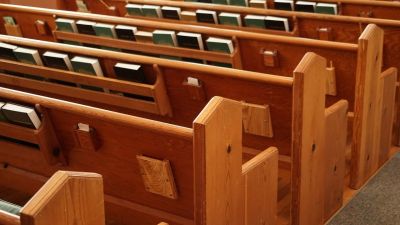Indiana Court Rules That Sex Offenders Can Attend Church

A three-judge panel of the Indiana Court of Appeals has ruled that sex offenders can attend church, rejecting a legal argument that church buildings could be defined as "school property."
In a decision issued Tuesday, the panel ruled in favor of three unnamed plaintiffs suing Boone County, overturning a lower decision that accepted the state's argument that they could not attend due to churches having children present.
Judge Margret Robb authored the opinion, noting that state law "does not say churches, Sunday school, or anything related to religious instruction for children is 'school property.'"
"In considering the structure of the statute and viewing it as a whole, we cannot say the legislature intended to prohibit Appellants or other 'serious sex offenders' from entering church property if that church offers Sunday school or child care services for children in the relevant age group," wrote Judge Robb.
"To state the obvious, a church is not a school nor is it a child caring institution that is required to be licensed regardless of whether it offers Sunday school or child care services to children who are at least three years old but not yet enrolled in kindergarten."
In July 2015, the Boone County Sheriff's Office sent letters to the three plaintiffs informing them that because of a new state law against "serious sex offenders" they were prohibited from going to church.
The three John Does filed a lawsuit in response, arguing that the sheriff's interpretation of the law violated their freedom of religion.
The plaintiffs were represented by the Indiana chapter of the American Civil Liberties Union, which argued that the measures violated the state's once controversial Religious Freedom Restoration Act.
"While [ACLU of Indiana Legal Director Ken Falk] argued his clients' cases could be won on the issue of the definition of school property alone, he also advanced the argument that the prohibition against the Does attending church is a violation of religious protections under RFRA," reported The Indiana Lawyer.
"That Act prohibits the government from substantially burdening a person's religious exercise unless it can prove a compelling interest and that the burden is the least restrictive means of advancing that interest."
In September 2016, the plaintiffs lost at the trial court level, when it ruled that churches could be considered "school property" when children's programming was taking place.



























